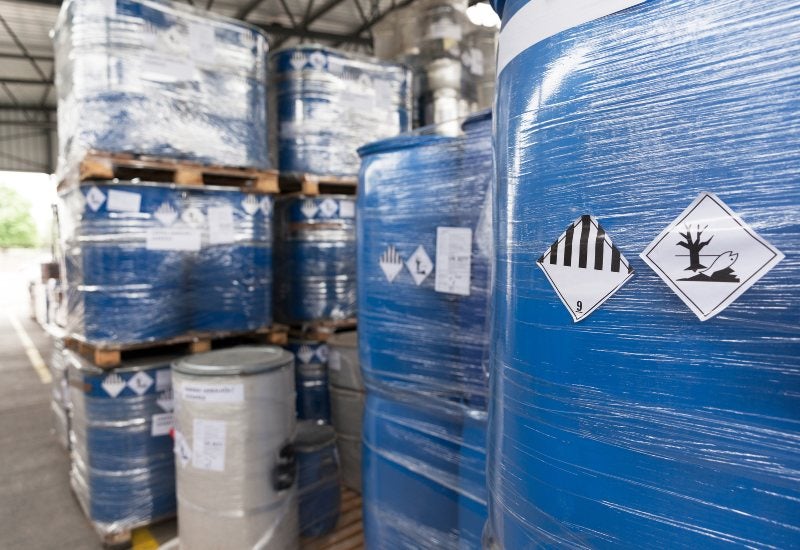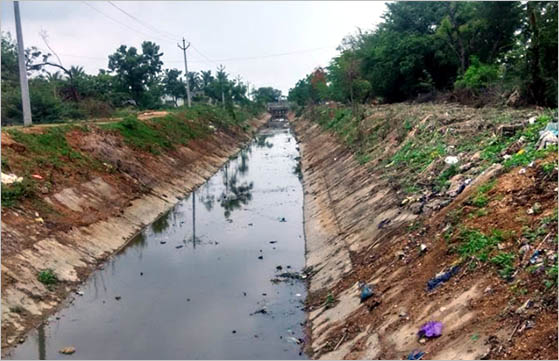Understanding the Comprehensive Process of Fluid Garbage Disposal: Ideal Practices and Environmental Impact Considerations
The administration of fluid waste disposal is a multifaceted problem that calls for a comprehensive understanding of numerous finest methods and their associated environmental influences. From the kinds of fluid waste produced to the methods employed for collection, treatment, and last disposal, each step plays an important duty in safeguarding ecosystems and public health. As regulative standards develop and technology breakthroughs, the discussion around these procedures ends up being increasingly important. What ramifications do these changes hold for future sustainability initiatives, and exactly how can stakeholders ensure that they are adequately dealt with?
Sorts Of Liquid Waste
Comprehending the various sorts of liquid waste is crucial for effective management and disposal practices. Fluid waste can be generally categorized into several types, each needing one-of-a-kind handling and therapy techniques.
Industrial liquid waste typically contains hazardous products, consisting of heavy metals, solvents, and chemicals, produced throughout manufacturing processes. These wastes require stringent regulatory compliance to secure human wellness and the environment. Domestic liquid waste largely describes wastewater generated from households, consisting of sewer and greywater, which, although much less harmful, can still position substantial dangers if poorly managed.
Agricultural fluid waste, consisting of drainage from ranches, usually consists of plant foods and chemicals that can cause ecological destruction if not treated sufficiently. Clinical liquid waste, created from medical care centers, consists of polluted fluids such as bodily fluids and chemicals, requiring specialized disposal approaches to avoid infection and environmental contamination.
Lastly, oil and oil waste, usually generated by dining establishments and vehicle markets, can trigger extreme obstructions in drain systems if not managed correctly. Comprehending these categories facilitates targeted approaches for treatment, conformity with laws, and reliable disposal techniques, eventually promoting environmental sustainability and public wellness security.

Collection Techniques
Reliable collection methods are crucial for the correct administration of liquid waste, guaranteeing that it is collected safely and efficiently before treatment or disposal. Different methods are used depending upon the type of fluid waste produced, the quantity, and the particular attributes of the waste.
One common approach is making use of committed collection tanks or sumps, which are designed to catch fluid waste at the source. These systems usually include pumps that facilitate the transfer of waste to bigger storage space containers or treatment centers. Furthermore, mobile collection units geared up with vacuum cleaner technology are used in situations where waste is produced periodically or in hard-to-reach areas.
For industrial setups, closed-loop systems can effectively lessen spills and leakages, permitting the recuperation and reuse of liquid waste. It is also necessary to train personnel on appropriate collection methods to alleviate risks related to unsafe substances.
Furthermore, applying regular maintenance routines for collection devices makes certain optimal performance and security. The combination of advanced tracking systems can boost collection performance by giving real-time data on waste degrees and potential risks. Generally, efficient collection approaches are foundational to sustainable fluid waste administration techniques.
Therapy Procedures
Therapy procedures play a crucial role in the management of fluid waste, changing possibly unsafe materials right into secure effluents or reusable resources - liquid waste disposal. These processes can be broadly categorized more helpful hints into physical, chemical, and organic approaches, each customized to deal with details impurities existing in the waste stream
Physical treatment methods, such as sedimentation and filtration, job by getting rid of put on hold solids and particulate issue. These methods are often the first action in the treatment chain, successfully minimizing the tons on subsequent procedures. Chemical therapies include using reagents to neutralize unsafe compounds, precipitate heavy steels, or oxidize organic pollutants, therefore boosting the security of the effluent.
Biological therapy processes, consisting of activated sludge systems and anaerobic food digestion, take advantage of on the all-natural abilities of microbes to deteriorate natural matter. These approaches are particularly reliable for wastewater containing eco-friendly pollutants. Advanced therapy modern technologies, such as membrane layer filtering and progressed oxidation processes, are progressively used to achieve greater degrees of filtration.
Incorporating a combination of these therapy methods not only makes sure conformity with regulatory requirements yet also promotes environmental sustainability by recouping important sources from fluid waste.
Disposal Options
Just how can companies guarantee the liable and safe disposal of liquid waste? Efficient disposal alternatives are crucial for protecting public health and wellness and the environment. The primary methods include land disposal, incineration, and therapy adhered to by discharge right into municipal wastewater systems.
Land disposal involves the cautious containment of liquid waste in designated land fills, guaranteeing that it does not seep into surrounding soil or water. Incineration, on the other hand, subjects liquid waste to high temperatures, converting it into ash and gases, which require appropriate filtering to reduce discharges. This technique is ideal for contaminateds materials that can not be treated via traditional means.
In situations where liquid waste can be dealt with, companies may go with organic or chemical treatment processes to neutralize damaging elements before releasing the dealt with effluent right into local systems. This path generally aligns with governing needs, making certain that the effluent satisfies safety standards.
Inevitably, companies need to conduct thorough analyses of each disposal alternative to identify its viability, taking into consideration aspects such as waste composition, regulatory conformity, and potential dangers to health and the setting. By choosing suitable disposal approaches, organizations can add to a liable waste management method.
Environmental Influence
The environmental impact of liquid garbage disposal is a vital factor to consider for organizations looking for to reduce their eco-friendly footprint. Inappropriate disposal approaches can cause substantial contamination of water sources, soil find deterioration, and adverse impacts on local ecological communities. For example, hazardous liquids can seep right into groundwater, presenting threats to drinking water materials and marine life. Additionally, the discharge of unattended or inadequately dealt with waste into surface area waters find more can cause eutrophication, leading to oxygen deficiency and the succeeding death of fish and other microorganisms.

To mitigate these impacts, companies must embrace best practices such as implementing strenuous waste therapy processes, promoting recycling and reuse, and adhering to regulatory standards. By taking an aggressive approach to fluid waste monitoring, entities can significantly lower their ecological impact while sustaining sustainable development objectives. Eventually, a detailed understanding of the environmental impacts related to liquid garbage disposal is crucial for educated decision-making and accountable stewardship of natural deposits.
Verdict
Reliable management of liquid waste is critical for safeguarding ecological honesty and public health. Inevitably, an extensive understanding of fluid waste disposal not just reduces ecological effects yet additionally fosters a commitment to accountable source management and environmental stewardship.
The administration of liquid waste disposal is a multifaceted problem that calls for an extensive understanding of numerous ideal methods and their linked environmental impacts. From the types of liquid waste generated to the techniques utilized for collection, therapy, and last disposal, each action plays an important function in safeguarding ecosystems and public wellness.The ecological impact of liquid waste disposal is a vital consideration for organizations looking for to minimize their ecological impact. Inevitably, a comprehensive understanding of the environmental impacts linked with fluid waste disposal is crucial for educated decision-making and liable stewardship of all-natural sources.
Eventually, an extensive understanding of liquid waste disposal not only reduces environmental influences yet additionally promotes a dedication to accountable resource monitoring and ecological stewardship.